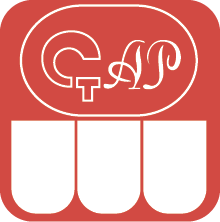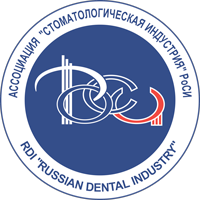DOI:
10.37988/1811-153X_2023_2_178Morphological prerequisites for the formation of stylohyoid syndrome: clinical observations
Downloads
Abstract
The article presents the topographic, anatomical, and morphometric features of the styloid process, stylohyoid ligament, lesser horns of the hyoid bone, which are functionally combined into the stylohyoid complex. The topography of the styloid process of the temporal bone has several features. The distal part of it passes in the peripharyngeal space of the neck along the pharyngeal wall, where the neurovascular bundle of the neck is anatomically closely adjacent to the styloid process. The pointed end of the elongated and curved styloid process of the temporal bone can irritate the surrounding nerve, vascular and muscle structures. A set of clinical symptoms associated with lengthening or curvature of the styloid process of the temporal bone, complete or partial ossification of the stylohyoid ligament with the formation of articular joints is defined as stylohyoid syndrome or Eagle syndrome. This is the generally accepted name for a set of clinical symptoms associated with abnormalities in the size and position of the styloid process of the temporal bone. The basis of the pathogenesis of the stylohyoid syndrome is not only the elongation of the process, but also its pathological deviation in the medial-posterior direction, combined with thickening and curvature. Depending on which of the formations located in the immediate vicinity is exposed to the apex of the deviated process, two subspecies of the stylohyoid syndrome are distinguished: styloid-pharyngeal and styloid-carotid. We paid more attention to the stylo-pharyngeal syndrome.Conclusion.
Despite high research technologies, stylohyoid syndrome remains little known to practitioners and an insufficiently studied disease, although anomalies of the stylohyoid complex occur in 20—30% of people.
Key words:
stylohyoid complex, stylohyoid syndrome, styloid process, megastyloidFor Citation
[1]
Davydova L.A., Trushel N.A., Ryzhkova A.V., Vasil’ev Yu.L., Tiunova N.V., Yanova N.A. Morphological prerequisites for the formation of stylohyoid syndrome: clinical observations. Clinical Dentistry (Russia). 2023; 26 (2): 178—184. DOI: 10.37988/1811-153X_2023_2_178
References
- Tarasova M.V., Sharin A.N., Ronkin K.Z., Ishchenko T.A. Is there a relationship between the Kimmerle’s anomaly, stylohyoid syndrome and craniomandibular dysfunction? Russian Bulletin of Dental Implantology. 2020; 3-4 (49—50): 95—100 (In Russian). eLIBRARY ID: 46305988
- Ishchenko T.A., Ronkin K.Z., Bulycheva E.A., Krasnoperov I.V., Harke V.V. Eagle’s Syndrome: etiology, pathogenesis, clinical manifestations, diagnostics and treatment (literature review). The Dental Institute. 2020; 3 (88): 76—77 (In Russian). eLIBRARY ID: 44076257
- Taneja S., Chand S., Dhar S. Stylalgia and styloidectomy: a review. J Maxillofac Oral Surg. 2023; 22 (1): 60—66. PMID: 36703673
- Mishra A., Dabholkar J., Lodha J., Sharma A., Mhashal S. Stylalgia: a missed diagnosis. Otolaryngol Pol. 2015; 69 (2): 34—7. PMID: 26224228
- González-García N., Porta-Etessam J., García-Azorín D. Eagle syndrome: toward a clinical delimitation. Neurologia (Engl Ed). 2021; 36 (6): 412—417. PMID: 34238523
- Al-Amad S.H., Al Bayatti S., Alshamsi H.A. Stylohyoid ligament calcification and its association with dental diseases. Int Dent J. 2023; 73 (1): 151—156. PMID: 35902309
- Nogueira-Reis F., de Oliveira Reis L., Fontenele R.C., Freitas D.Q., Tabchoury C.P.M. Prevalence and features of elongated styloid process on imaging studies: a systematic review and meta-analysis. Clin Oral Investig. 2022; 26 (2): 1199—1215. PMID: 34800204
- Egierska D., Perszke M., Kurianowicz I. Eagle’s syndrome. Pol Merkur Lekarski. 2021; 49 (294): 458—460. PMID: 34919094
- Lambor D.V., Shetgaunkar R.R., De Sa C. Stylalgia: our experience of 101 cases treated by intraoral styloidectomy. Indian J Otolaryngol Head Neck Surg. 2022; 74 (Suppl 2): 2198—2204. PMID: 36452776
- Willett G.M., Walker T.F., Norton N.S. Stylohyoid syndrome. J Orthop Sports Phys Ther. 2019; 49 (8): 621. PMID: 31366296
- Nikitin A.A., Lapshin V.P., Titova N.V. Clinical case of the patient with osteoma of styloid process. Clinical Dentistry (Russia). 2009; 2 (50): 70—71 (In Russian). eLIBRARY ID: 22775435
- Mudry A. From the stylet of the temple to the tongue in so-called Riolan’s bouquet. Eur Ann Otorhinolaryngol Head Neck Dis. 2020; 137 (4): 347—348. PMID: 32192900
- Ermoshenko R.B., Vinnichenko E.L., Stolyar R.I. Clinical and diagnostic parallels of stylomandibular ligament elongation, manifestations of Eagle eponymous syndrome. Dental Magazine. 2013; 12 (120): 80—8 (In Russian).
- Shereen R., Gardner B., Altafulla J., Simonds E., Iwanaga J., Litvack Z., Loukas M., Shane Tubbs R. Pediatric glossopharyngeal neuralgia: a comprehensive review. Childs Nerv Syst. 2019; 35 (3): 395—402. PMID: 30361762
- Czako L., Simko K., Thurzo A., Galis B., Varga I. The syndrome of elongated styloid process, the Eagle’s syndrome From anatomical, evolutionary and embryological backgrounds to 3D printing and personalized surgery planning. Report of five cases. Medicina (Kaunas). 2020; 56 (9): 458. PMID: 32916813
- Lebediantsev V.V., Kochkina N.N., Lebediantseva T.V. Diagnostics of stylohyoid syndrome. Bulletin of Otorhinolaryngology. 2014; 5: 20—22 (In Russian). eLIBRARY ID: 22887750
- Jadav D., Kanchan T., Shekhawat R.S., Meshram V., Tak M. Elongated styloid process: An incidental autopsy finding of clinical and medico-legal significance. J Forensic Leg Med. 2022; 87: 102334. PMID: 35304350
- Scavone G., Caltabiano D.C., Raciti M.V., Calcagno M.C., Pennisi M., Musumeci A.G., Ettorre G.C. Eagle›s syndrome: a case report and CT pictorial review. Radiol Case Rep. 2019; 14 (2): 141—145. PMID: 30405864
- Lebedyantsev V.V. Anatomical-topographic bases of detection of objective signs of stylohyoid syndrome. Russian Journal of Operative Surgery and Clinical Anatomy. 2019; 2—2: 65 (In Russian). eLIBRARY ID: 41331994
- Kumar P.S., Singh D.K., Gupta S.K., Raina S., Prasad B.K. Of Eagle’s syndrome and finding some clarity on its management. Indian J Otolaryngol Head Neck Surg. 2022; 74 (Suppl 2): 2184—2189. PMID: 36452859
- De Ravin E., Frost A.S., Mady L.J., Newman J.G. Transcervical styloidectomy for Eagle syndrome. Head Neck. 2022; 44 (6): 1492—1495. PMID: 35191132
- Huang K., Sanjuan-Sanjuan A., Cannavo M., Cass T., Ramirez C.A. Does transcervical styloidectomy for Eagle syndrome improve quality of life? J Oral Maxillofac Surg. 2022; 80 (12): 1989—1995. PMID: 36174663
- Gupta M., Kumar Y., Vig H., Rizvi A. Classic Eagle’s syndrome: styloidectomy via the transcervical approach. BMJ Case Rep. 2021; 14 (8): e244634. PMID: 34380690
- Hajare P., Puneeth Nayak S., Deepthi B., Shashi Kumar T. Eagle’s syndrome: an underdiagnosed condition-case series in a tertiary care hospital. Indian J Otolaryngol Head Neck Surg. 2019; 71 (Suppl 1): 949—952. PMID: 31742100
Downloads
Received
April 19, 2023
Accepted
May 25, 2023
Published on
July 6, 2023










